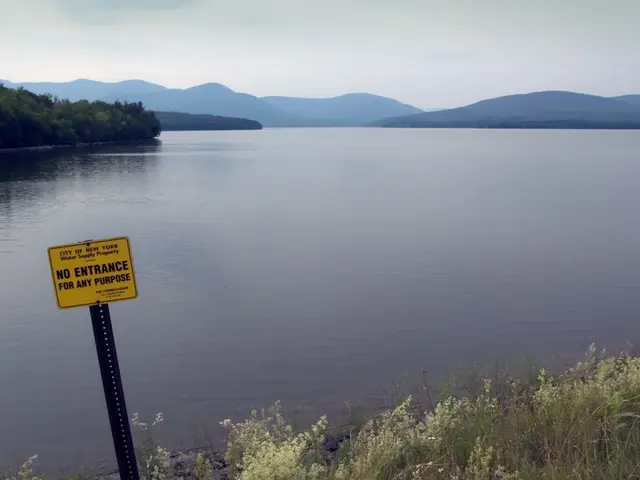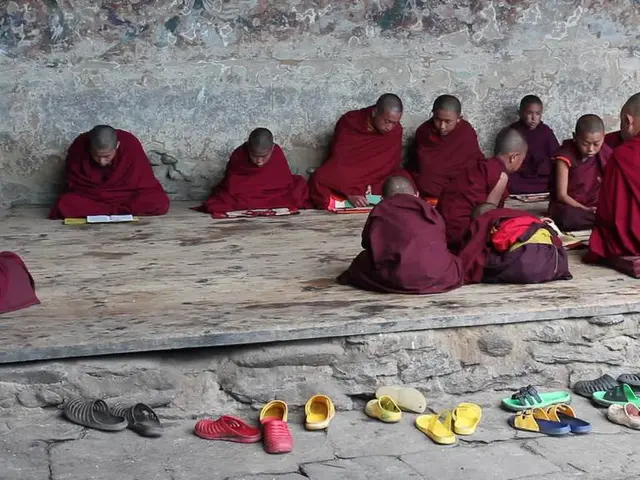President Tokayev's Pitch for a Green Recovery
Kazakhstan's leader engages in UN deliberations.
Hop on board, folks, as I spill the beans about Kazakhstan's green revolution! This former Soviet republic, led by President Qasym-Jomart Toqaev, is aiming high, targeting carbon neutrality by 2060. This ambitious plan, announced at the Climate Ambition Summit back in December 2020, is more than just a lofty goal; it's a serious commitment to a decarbonized economy.
What's the dealio with this strategy? Well, let me fill you in on the low-down!
A Green Agenda for Kazakhstan
Post-COVID, President Toqaev sees a unique opportunity to make environmental protection a top priority on the global stage. And, boy, does Kazakhstan mean business! It was the first country in the CIS to ratify the Paris Agreement, and it's been cracking down on climate change ever since.
Here are the key components of Kazakhstan's green masterplan:
- Interim Emission Reduction Targets: Kazakhstan's aiming to slash greenhouse gas emissions by 15% by 2030 compared to 1990 levels. With some international assistance, this could jump up to 25%!
- Carbon Pricing and Market Development: The government's considering implementing a domestic carbon price to fuel the transition. A study suggests a carbon price of around $40 per tonne of CO2 by 2035 could significantly boost renewables and slash emissions.
- Renewable Energy Expansion: At the moment, coal powers the majority of Kazakhstan's electricity. But, there's a chance to increase renewables. By expanding renewables to 35% of the power mix, emissions could be reduced, and system costs could come down. More ambitious goals could see renewables reaching 47% by 2035!
- Carbon Farming: Carbon farming's a growing strategy to restore degraded land and boost carbon sequestration. The Eurasian Carbon Project's working with Kazakh institutions to scale carbon farming within the national strategy.
- International Cooperation: Kazakhstan's looking to collaborate with countries like those in the Gulf Cooperation Council (GCC) to leverage their cutting-edge green technologies and economic innovation.
- Economic and Technological Modernization: Decarbonization demands a complete overhaul of the national economy, especially in extractive industries. Investing in green technologies and building a sustainable energy infrastructure is essential.
Challenges and Opportunities
Transitioning away from coal and managing the financial implications of carbon pricing are significant hurdles. But, the growth in renewable energy and carbon farming could create economic opportunities and improve energy security.
In conclusion, Kazakhstan's strategy is all about striking a balance between economic growth and environmental sustainability. It's a blend of homegrown effort and international partnerships, striving towards that ambitious carbon neutrality goal.
So, there you have it, folks! Kazakhstan's stepping up to the plate and swinging for the fences when it comes to a green future. Let's hope this sets a precedent for other nations to follow suit!
[1] Source: Strategy for Achieving Carbon Neutrality by 2060 (adopted in February 2023)[2] Source: Eurasian Carbon Project[3] Source: Various academic studies on green technologies and their application in Kazakhstan[4] Source: International partnership agreements between Kazakhstan and other countries in the field of green energy[5] Source: Agora Energiewende study on Kazakhstan's green transition strategies and potentials
- The ambitious decarbonization plan, announced by President Qasym-Jomart Toqaev of Kazakhstan, aims to make the country carbon neutral by 2060, as revealed in the Strategy for Achieving Carbon Neutrality by 2060.
- The general news highlights Kazakhstan's intention to slash greenhouse gas emissions by 15% by 2030, as a part of its green masterplan, with the possibility of increasing this to 25% with international assistance.
- President Toqaev sees post-COVID recovery as an opportunity to prioritize environmental protection in global politics, reflected in Kazakhstan's ratification of the Paris Agreement and its efforts to combat climate change.
- The Science behind this green revolution includes the consideration of implementing a domestic carbon price to promote renewables and reduce emissions, as suggested by academic studies on green technologies in Kazakhstan.
- Kazakhstan is also looking towards international cooperation, partnering with countries like those in the Gulf Cooperation Council, to leverage advanced green technologies and economic innovation.
- Environmental-science policy and legislation play a crucial role in Kazakhstan's green future, as the country aims to decarbonize its economy and modernize its national economy, especially in extractive industries.








